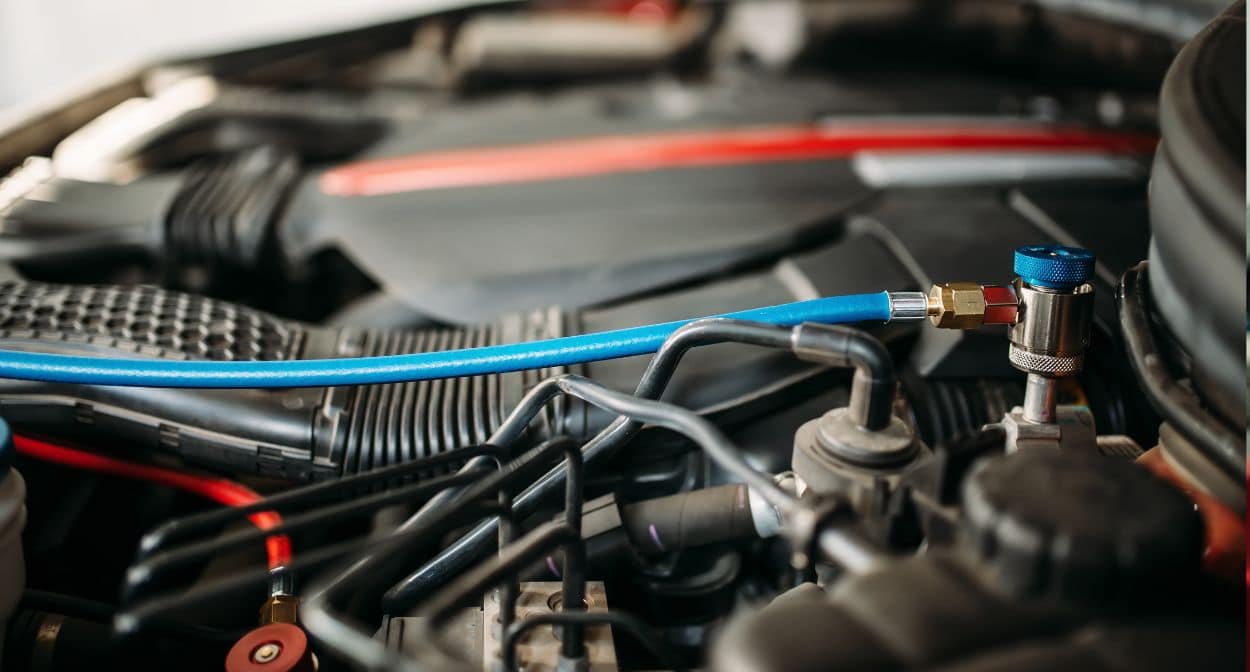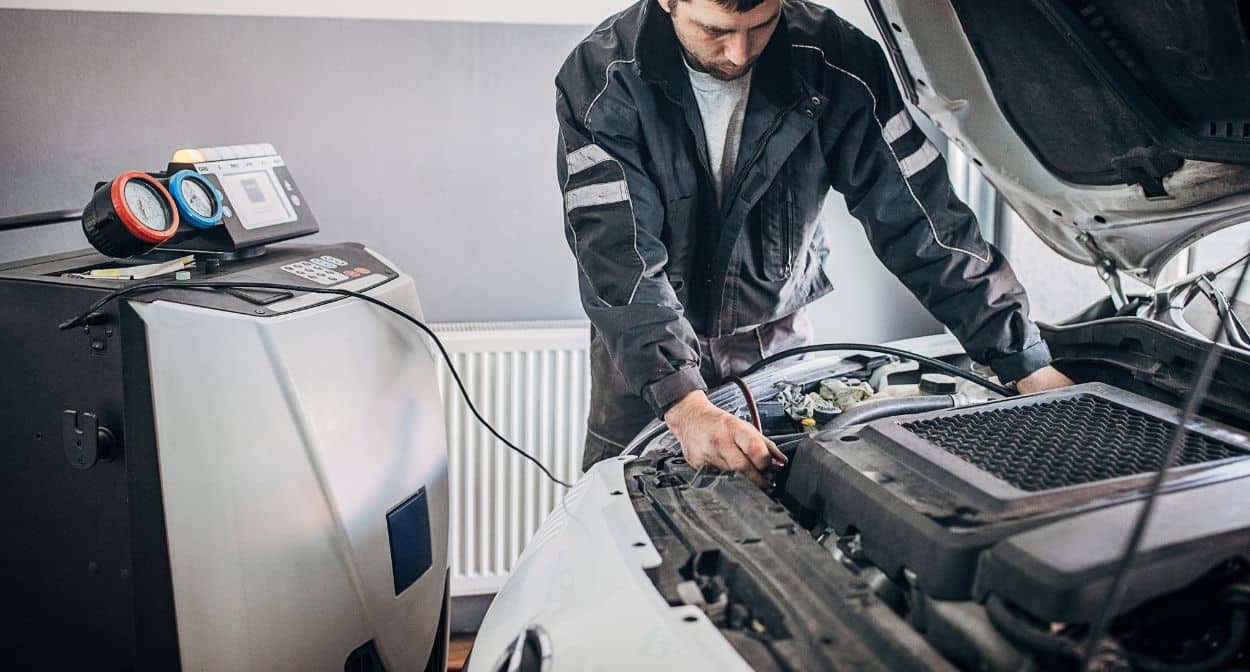Welcome to our definitive guide on vehicle AC service. We understand the importance of a well-functioning air conditioning system in your car, especially during those hot summer days. In this comprehensive handbook, we will delve into the intricacies of vehicle AC service, ensuring that you are well-equipped to keep your car’s AC running at its peak performance.

Understanding the Components of Vehicle AC System
The vehicle AC system is a complex assembly of components working in harmony to cool the air inside your car. Let’s break down these components:
Compressor
The heart of the AC system, the compressor, is responsible for compressing the refrigerant and circulating it through the system.
Condenser
Situated in front of the radiator, the condenser cools down the refrigerant from a high-pressure gas to a high-pressure liquid.
Receiver-Drier
This component cleans and removes moisture from the refrigerant, ensuring that only clean, dry refrigerant circulates through the system.
Expansion Valve
The expansion valve controls the flow of refrigerant into the evaporator, allowing it to expand and cool down.
Evaporator
Located inside the vehicle, the evaporator removes heat from the air, sending cool air into the cabin.

The Importance of Regular AC Maintenance
Regular maintenance of your vehicle’s AC system is crucial. It ensures optimal performance, prolongs the lifespan of the AC components, and maintains the quality of air inside your car. Additionally, regular service can help identify potential issues early, saving you from costly repairs in the future.

Signs That Your Vehicle AC Needs Service
Stay vigilant for these signs that indicate your vehicle’s AC system requires service:
Reduced Cooling Efficiency
If the air blowing from the vents is not as cold as it used to be, it might be time for an AC service.
Unusual Noises
Hearing strange noises when the AC is running could indicate a problem with the compressor or other components.
Foul Smell
A musty smell coming from the AC vents often means mold or mildew has accumulated in the system.

A Step-by-Step Guide to Vehicle AC Service
Here’s a detailed guide to servicing your vehicle’s AC system:
Step 1: Inspection
Begin by inspecting the AC components for any visible signs of wear or damage.
Step 2: Refrigerant Recovery
Using specialized equipment, recover the old refrigerant from the system for recycling or disposal.
Step 3: System Cleaning
Clean the condenser and evaporator coils to ensure optimal heat transfer.
Step 4: Replacing Components
Replace any worn-out components such as the receiver-drier or expansion valve.
Step 5:Recharging the System
Recharge the AC system with the appropriate amount and type of refrigerant.
Step 6: Performance Test
Finally, run the AC system and monitor its performance to ensure that it is cooling efficiently and operating without any unusual noises or smells.

Choosing the Right Refrigerant
Selecting the right refrigerant is essential for the efficient functioning of your vehicle’s AC system. The two most common types are R-134a and R-1234yf. While R-134a has been the standard for many years, R-1234yf is more environmentally friendly and is becoming increasingly popular in newer vehicles.

Common AC System Problems and Solutions
Let’s explore some common issues that can arise in vehicle AC systems and how to address them:
Leaking Refrigerant
Leaks can occur in various parts of the AC system. It’s essential to locate and repair these leaks and then recharge the system with the correct refrigerant.
Clogged Condenser
A clogged condenser can impede the cooling process. Cleaning the condenser can often resolve this issue.
Faulty Compressor
If the compressor is not functioning properly, it may need to be repaired or replaced.
Mold and Mildew
Accumulation of mold and mildew can cause foul smells. Cleaning the evaporator and using an anti-bacterial treatment can help eliminate this problem.

The Future of Vehicle AC Systems
As technology advances, vehicle AC systems are becoming more efficient and environmentally friendly. Electric and hybrid vehicles are leading the way with innovative cooling systems that reduce the reliance on traditional refrigerants. Additionally, advancements in materials and design are contributing to more energy-efficient systems that not only cool the cabin but also help in improving the overall performance of the vehicle.
Conclusion
Understanding and maintaining your vehicle’s AC system is essential for ensuring a comfortable driving experience. Regular service, using the right refrigerant, and staying vigilant for signs of problems can keep your AC system running efficiently. As we look to the future, innovations in AC systems are set to make them more sustainable and effective.
Thank you for choosing our ultimate handbook as your guide to mastering vehicle AC service. We are confident that this comprehensive resource will serve you well in keeping your car’s AC system in peak condition.

